
WalaHaja #12: The Tradition of Enlightenment, a global vision
The post is originally written and published as an X Article during Q4 2024.
Stumbling upon an old purposely tagged Audio-book segment
After getting my cousin to reactivate my Google One subscription – since Egypt officially blocks all prepaid cards from making online transactions except in local platforms, I had to use his banker’s card for that purpose – I stumbled upon this 80 seconds silent screen-capture video – I seemed as if I have saved it during one of my barefoot trips through Dahab’s Magic Lake, where I usually open up to new ideas and inspiration, or during one of the evening mountain trips where I usually conclude my research and learning for the day.
"Is enlightenment a possibility in this lifetime?"
— Abdo Magdy (@mjdyibrahim) April 9, 2025
I captured this silent screen recording from @audible_com's "The Eye of the I for @VeritasPublish while going for a barefoot sunrise meditation for a reason, forgot it for 2 years, then transcribed the tagged portion, it says: pic.twitter.com/5CjOZtUK6Q
As you can see, the 80 seconds were that of an Audible title named: “The Eye of the I, Chapter 18: Truth and Error” starting from 8:56 minute, I saw the mute screen recording today and I got curious about what was playing there. I turned to my phone to get the recently re-downloaded title from the Audible app and playback this exact segment that I seem to have “tagged” for a certain purpose.
I transcripted the segment and it said:

The Map of Consciousness, Making sense of the intellectual inspiration behind #WalaHaja
After I thoughtfully went through the tagged segment in this screen-capture video, it suddenly hit me. The #WalaHaja blogs that I wrote was a graduate of this “silent” thinking process. I have probably processed this information on a deeper level before it came to my cognitive consciousness and matured enough to be verbally shared and expressed.
What's the world's most crucial problem?
— Abdo Magdy (@mjdyibrahim) February 28, 2024
Society entangled in lower vibrational frequencies due to its corrupt governing structures.
World's top startup idea?
Increasing consciousness of living beings through a new paradigm of governing structures. pic.twitter.com/V4bIt6jMq0
The Map of Consciousness is the easiest and most direct way to visualize the idea of David R. Hawkins, M.D. Ph.D. he states that there is a way to measure the frequency based on which individuals and societies are living and the corresponding life-view, emotion and process they follow at each range, in this silent segment, he states that for centuries humanity has been vibrating below “190” and in the past 1000 years, humanity had been stuck in the range of “Non Integrity”.
New Era of Global Higher Consciousness
Though now we are entering a new era in which the average vibration has risen to “207” marking the fact that for the average human, now integrity is something vital to us.
Motivated by my own challenges and struggles, I was inspired by this concept to pursue the journey of raising my own vibrational frequency to qualify to face past, present and potentially future struggles.
Smearing Campaigns are a classic mobbing technique employed by weak men when they fail to dominate an individual they consider "threatening"
— Abdo Magdy (@mjdyibrahim) March 26, 2024
Upside, when you go into wilderness alone, you're able to model the new character that will break the teeth of your enemies
Barefoot pic.twitter.com/x6VxZgpEUw
Facilitating discussions on consciousness and raising our vibrations as part of a co/mmunity project in Sinai
Raising our vibration has been a conscious choice in the community and hospitality brand/tech startup I was building in Sinai. Not only facilitated by barefoot daily meditations during Sun Rise and secluded mountain trips by Sun Set, coupled with the company of excellent like-minded and like-spirited Airbnb clients who become community members, but we have also facilitated discussions of these topics from both Eastern and Western views.
This conversation from one of the fireside chats of a co/mmunity project in Sinai. Featuring Russian, Ukrainian, Chinese and Egyptian (researchers); presents the possibility of an open/tolerant/advanced consciousness to bring seemingly different worlds into one (Like Buddah). pic.twitter.com/iYZ6RnKvFJ
— Abdo Magdy (@mjdyibrahim) April 9, 2025
BUDDAH has been a frequent visitor to our discussions on consciousness, in this video in which a Russian and a Chinese guests engage in discussion about the mind, we reach the conclusion of how BUDDAH was able through transcending the ego to build a peaceful perspective of a one world, with truth in the core of it. Since, falsehood is not really a thing, it’s only the cognitive error of classifying the state of absence of oneness stemming from fear.
While most of our guests have often shared ideas and reached conclusions through mind stimulating discourse, I have taken the venture a bit further. In the same location where you see the above discussion, I survived a certain death by a mean of a miracle. And I have truthfully pursued my research through getting close to losing my eyesight and reaching the boundaries of either facing black magic or hitting the borderline of losing my mind, or most probably both.
I was situated in Dahab, Sinai because it was the quietest and furthest spot from the disaster of Covid19 and also the memories and traumas of my past where I remained mobbed and alienated by my Cairo community, despite being an exceptional high performer on the surface.
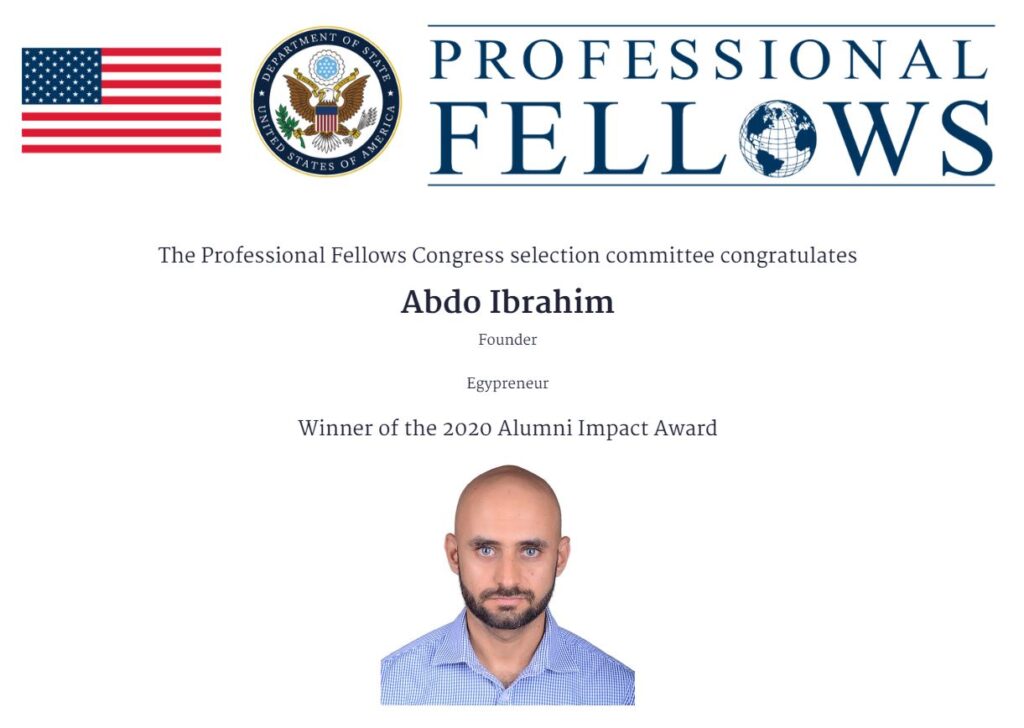
I was the 2020 Winner of The Alumni Impact Award by the U.S Department of State exchange program. Pursuing the building of a hybrid AI and a community-driven hospitality brand, Al-Basateen, inspired by a model developed at a design thinking session at Virginia Tech.
Last year at #VirginiaTech as part of #ProFellows program, the automated assistant concept has been crystalized. Today our #FundingAssistant Prototype has engaged over 100 founders with very positive sentiment + inspired new features. pic.twitter.com/1Yndu7lHFc
— Abdo Magdy (@mjdyibrahim) March 7, 2019
Sudden vs. Gradual Enlightenment, Understanding Eastern and Western routes for higher consciousness
David. R. Hawkings, M.D. Ph.D. specifies two – obvious – routes through which humans reach this BUDDAH-like state, the direct approach – you can call “Sudden Enlightenment” – , being more popular in the east as they shift into a ZEN-like strict adherence to “Spiritual Awareness” that inspires a “Progressive Perfection of Personality” till this state of near enlightenment is reached. Or an indirect approach – or you can call “Gradual Enlightenment” often demonstrated by traditional religions inspired by great teachers such as “Moses, Jesus and Muhammad” peace and blessings be upon them, this slow-cooked approach where personality is transcended and perfected through religious adherence often “occasioned by sudden leaps in awareness” seems to be the route I consciously or unconsciously subscribed to.
Western thinking today if based on harsh capitalism. Currency as the reference for value and value exchange.
— Abdo Magdy (@mjdyibrahim) March 31, 2024
Original and Authentic Western thinkers such as Plato, have had extensive illustration of what human soul is made of.
Someone is lying to you about you. pic.twitter.com/UscHjMZuJl
Both are obviously welcome approaches towards the same mean of reaching the highest possible vibrational frequency an individual is destined to reach. Native to the east/Asia, “Divinity” has always been associated with the arrival from this journey, while in the west, “Sainthood” is a more familiar state, could be conveyed with people like Marcus Aurelius and The Stoics for example.
Making sense of my personal experience and heritage
For me, this alternative state of consciousness was felt during and after a spectrum of spiritual experiences initiated by surviving a certain death in 2022. My death and/or near-death experience was beautifully memorable since it felt quite fatherly and I saw a very familiar ancient face that told me that I shall not die now and physically pushed me off a very thick electric cable I got tied to while working on expanding the same co/mmunity project I was passionate about.
My grandmother, who happens to come from the family of Prophet Muhammad PBUH, appeared to me with her grace and “gently made fun of me, instilling in me that I do not need to be afraid nor do I need to take what happens very seriously”.

I somehow felt that I came from a family of refugees, I was stained with remarkably baby blue eyes with a dark, classic Egyptian skin-color, you guessed it right, I have taken a lot of bullying at school. Though, this inheritance certificate, featuring the detailed ancestry of a branch of my being, provided a reference that even being a refugee does not necessarily come from weakness or poverty, though, it can come from glory and royalty.

My grandmother and her husband (my grandfather visible in the image above) are cousins where 50% of my mother-side DNA pool comes from Al Jazzar family, the Omda and Shaykh Al Balad (Defacto Community Leaders) of Egypt’s most mainstream area of Imbaba, both were known to have had their first grandmother arriving to Egypt upon the troubles with the Ottoman empire, she was known as the Ottoman Royal household lady whose family seek refuge in Egypt and inter-married with a powerful family in Imbada. I spent quite sometimes searching for an official record of Fatma Mahmoud Al Oqabbi, my great-great Turkish/Ottoman grandmother to whom I owe – most likely – the blue eyes.

While my direct research through government records have failed, my most recent DNA test showed obvious matches with almost all the Royal Families of Europe. I assumed given that mtDNA represents the maternal lineage, my great-great Ottoman grandmother had her roots also connected to other Royal families in Europe. This realization also made a lot of sense to my ability to see different perspectives and engage with different societies, it was not just a matter of learning and simulation, it could also be very likely encoded in my blood.
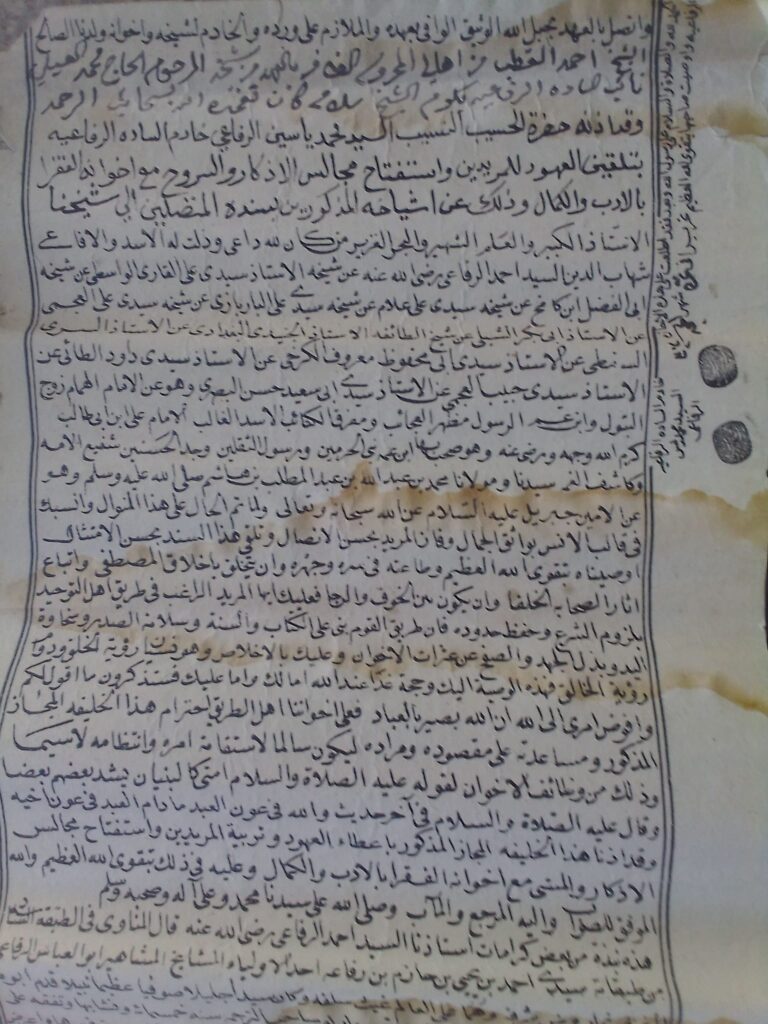
On the other hand, my research in my less documented father side, I arrived at this document showing that my great-great grandfather was an accredited mystic by an ancient Sufi order, Al Rifaiya, and he was married to the daughter of Issa Al Habbak, the son of Issa Al Fiqqi, the Omda / Shaykh Al Balad (i.e. Defacto Community Leader) of “Al Moskii District” in old Cairo.
Having had confirmed mystical roots from both my father and my mother’s side. I felt more comfortable dealing with the idea that I could have experienced some higher consciousness experiences, or let’s say at least have a documented excuse on why I could be a native to these states.
Integrating my AI, co/mmunity project with a global vision for “The Tradition of Enlightenment”, conveyed under “Oneness of Being” Algorithm for Ibn Arabi.
This is the core algorithm through which we try to bring every system of being together (Known as Unity of Being for Ibn Arabi).
— Abdo Magdy (@mjdyibrahim) April 17, 2024
It's our answer to the "AI Alignment" challenge. pic.twitter.com/DI89q4TCxi
Today, I’m a firm believer in the possibility for establishing global peace by returning humans back to their deeply rooted “Tradition of Enlightenment” and to utilize the powerful Artificial Intelligence technologies we are developing today to formulate a world where humans are pursuing their own very unique beings while transcending the err of their egos and ascending on the scale of higher vibrating consciousness.
In my own journey, I was inspired by how people from totally different backgrounds at a small coastal city can reach the exact same conclusion. Looking at the structure of my “bald head” at that time, someone told me that I carry the DNA of someone who was beheaded.
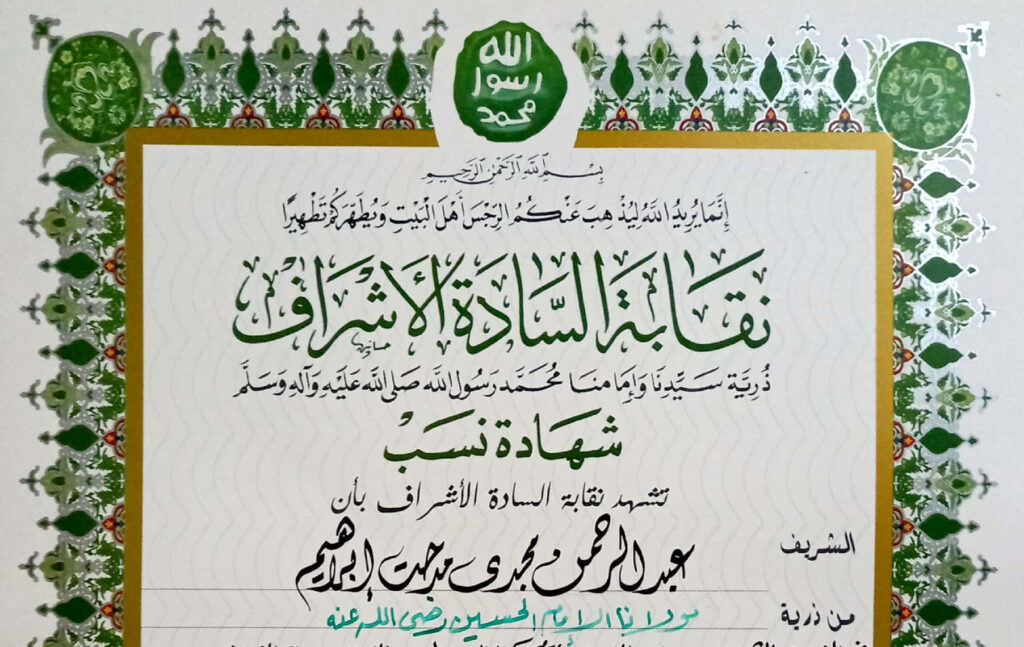
A fact that was then confirmed as I got a certificate of bloodline ending with the grandson of Prophet Muhammad Hussain RA, who was beheaded in his quest for global unity and authentic leadership, a path I might have knowingly or unknowingly been destined to pursue.
Now, beside working on a series of writings that I have labeled #WalaHaja – current found at: https://www.abdomagdy.com/walahaja/, I’m also working on the development of Conscience-driven AI solutions that prioritizes the idea of bringing communities back to their own version of “Tradition of Enlightenment” through a AI company that I have called @ernst_labs that I have decided to dedicate to the beautiful soul of Aaron Bushnell.
I'm building comprehensive AI frameworks to re-align human life on earth with the way God intended for it to be, powered by the best of truthful human inspiration and the best of modern AI engineering. pic.twitter.com/DEgZgd3WOJ
— Abdo Magdy (@mjdyibrahim) April 4, 2025












![[2022] Al-Basateen, Building Sustainable Living Communities in Egypt’s Sinai, Karm Hospitality](https://abdomagdy.com/wp-content/uploads/2024/09/Al-Basateen001-495x350.jpg)
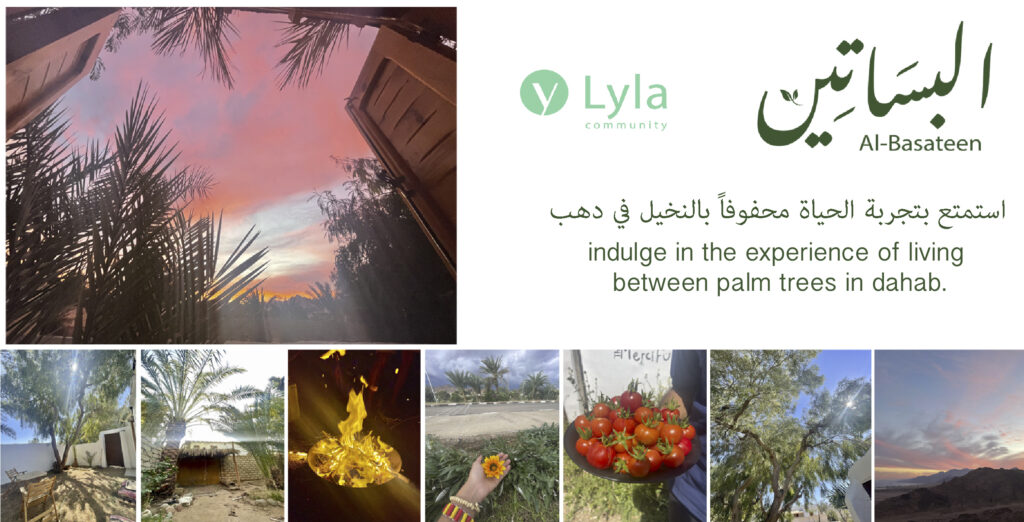
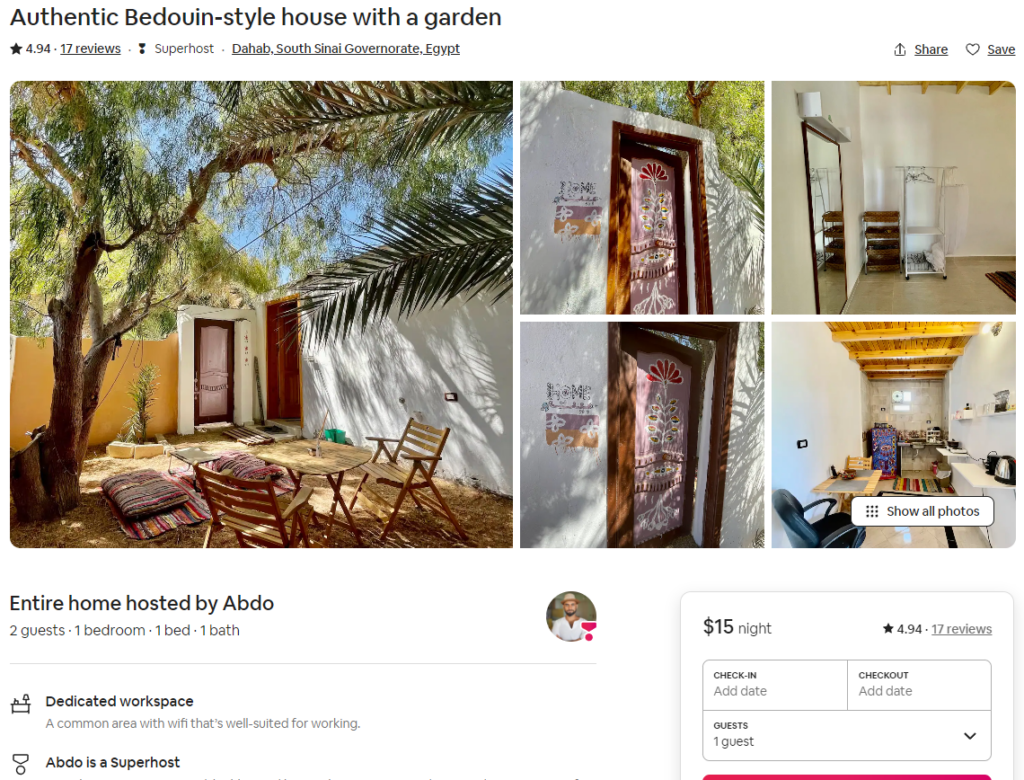
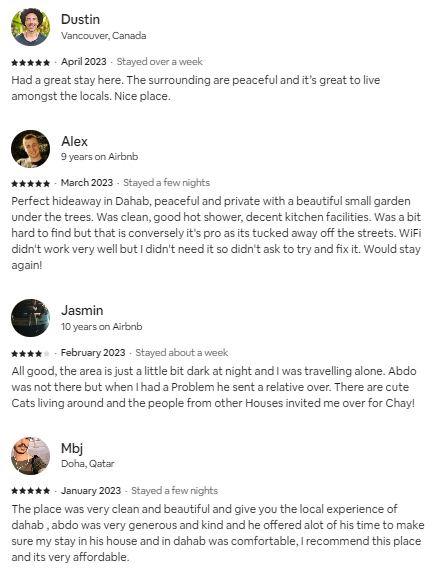
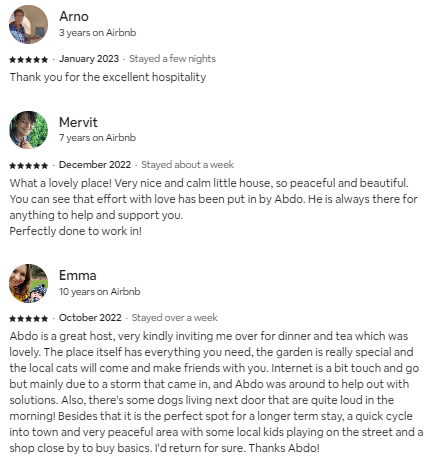
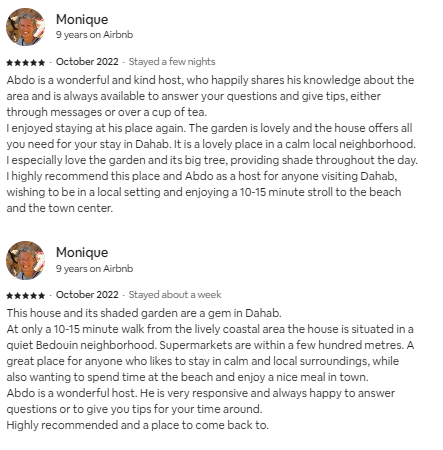
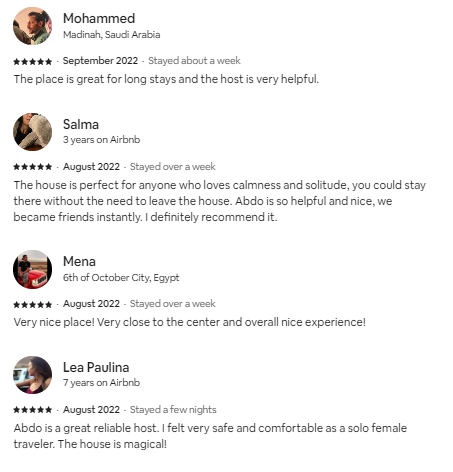
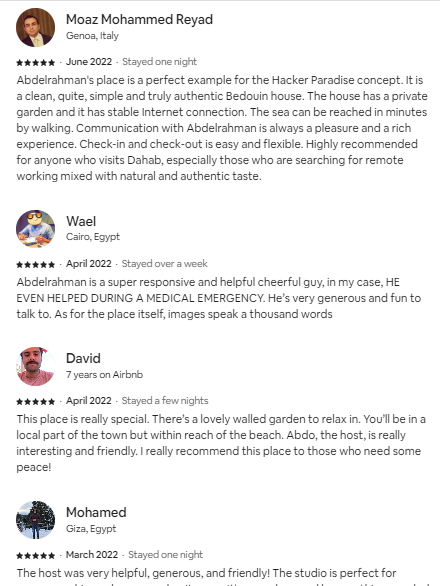
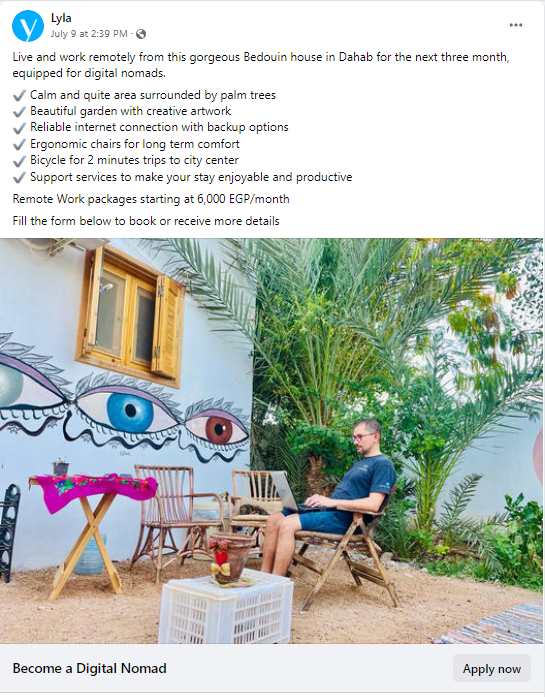
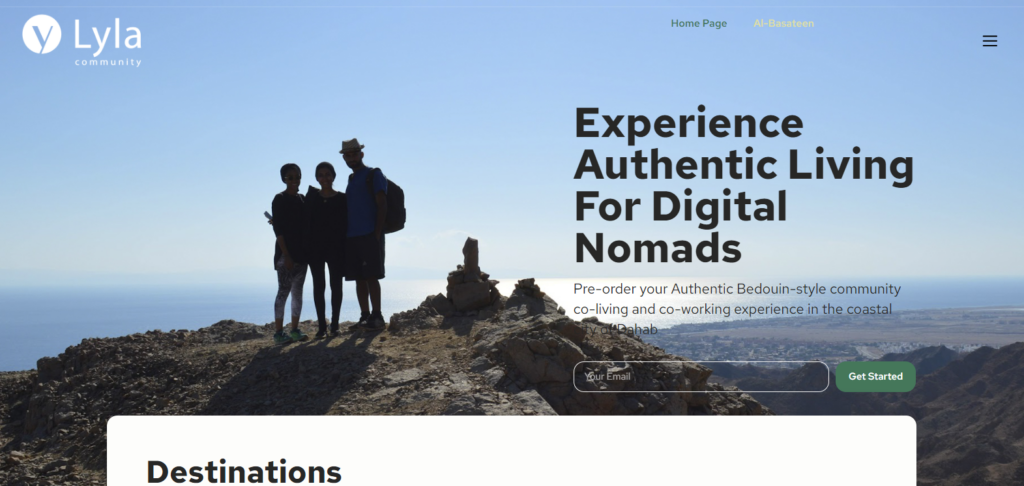

![[2020] [Campaign] [Egypreneur] Featuring “Remote Workers” in the Coastal City of Dahab](https://abdomagdy.com/wp-content/uploads/2024/09/RemoteWork-AssemEmam-TaskvsTime-Oriented-480x350.png)


![[2020] [Project] [Egypreneur] #COVID19 Business Continuity Emergency Response](https://abdomagdy.com/wp-content/uploads/2024/09/covid19-campaign-750x350.png)
![[Nile TV] Remote Work as an Emergency Response to Covid19](https://abdomagdy.com/wp-content/uploads/2024/04/20-750x350.jpg)
![[Nile TV] Mentorship, What you need to know for Young Entrepreneurs](https://abdomagdy.com/wp-content/uploads/2024/04/19-750x350.jpg)
![[Nile TV] Upgrading to The Modern Internet Sales Cycle in 2020](https://abdomagdy.com/wp-content/uploads/2024/04/18-750x350.jpg)
![[2019] [Project] [JV] Digital Transformation for the Oldest Standing Tourism Company in Egypt](https://abdomagdy.com/wp-content/uploads/2019/12/EastMarPartnership-750x350.png)
![[Nile TV] Key questions before year ends (Strategy & Innovation)](https://abdomagdy.com/wp-content/uploads/2024/08/18_corrected-750x350.jpg)
![[Nile TV] Challenges and Opportunities for SMEs in Egypt](https://abdomagdy.com/wp-content/uploads/2024/04/17-750x350.jpg)

![[Nile TV] Cybersecurity Threats, What you need to know](https://abdomagdy.com/wp-content/uploads/2024/04/16-750x350.jpg)



